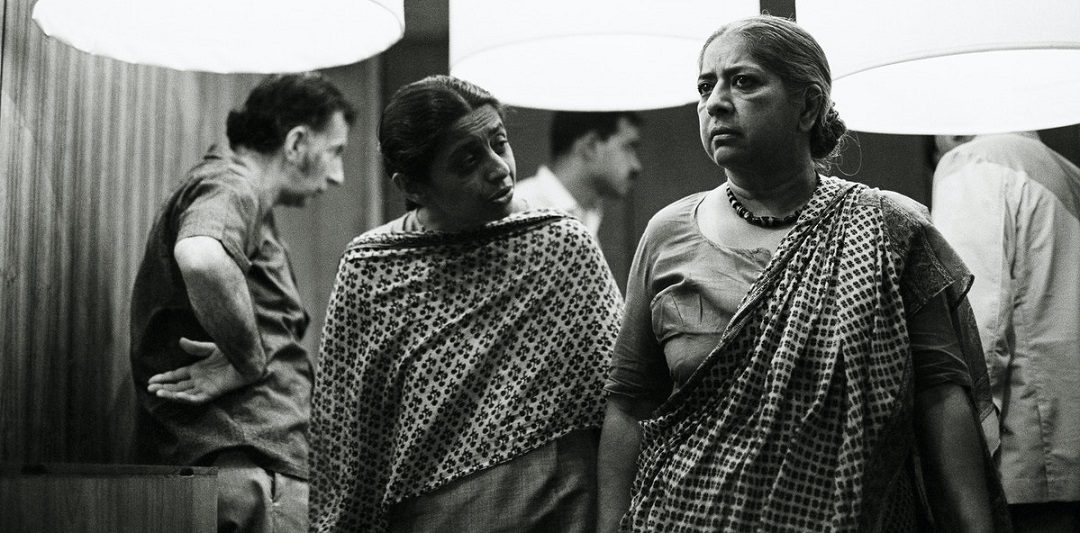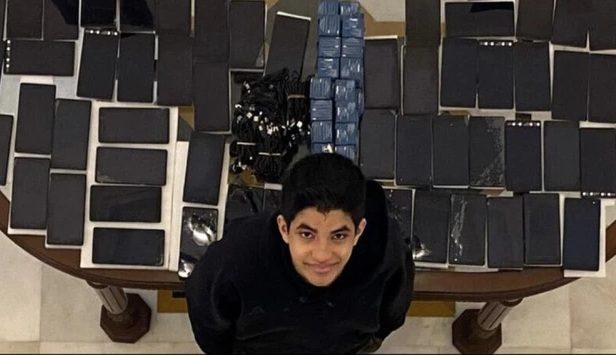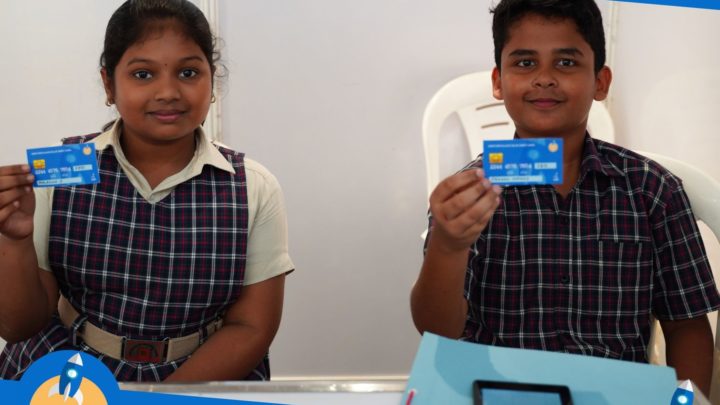(August 18, 2021) It was 2002, she was all of 26, had just gotten married and begun a career as a teacher. But Satarupa Majumder was far from satisfied. There was a niggling question on her mind that she just couldn’t find the answer to: What was the purpose of her life? What was it that she was truly meant to do? Was it a corporate career that would fulfill her or should she stick to teaching? Why was she doing it and what was it that she truly wanted? She finally found some of her answers when she was introduced to Nichiren Daishonin Buddhism in 2007 by a family member. It made her realize that working for the happiness of others was what she’d been looking for. How to go about that though, still remained a mystery.
Her quest finally ended in 2012 when she undertook a 100-kilometer trip from Kolkata to Hingalganj, in the Sundarbans, to donate a sewing machine that had been passed down by her grandmother. “I wanted to ensure that the sewing machine was given to someone who truly needed it,” she told Global Indian in an exclusive interview. While there, she discovered that the area had not one decent school, many of the kids whiled away their time or rolled beedis for their parents who worked at beedi factories. And so, it was at Hingalganj that Majumder found her true calling — she went on to set up Swapnopuron, the first and only English medium school in the Sundarbans.
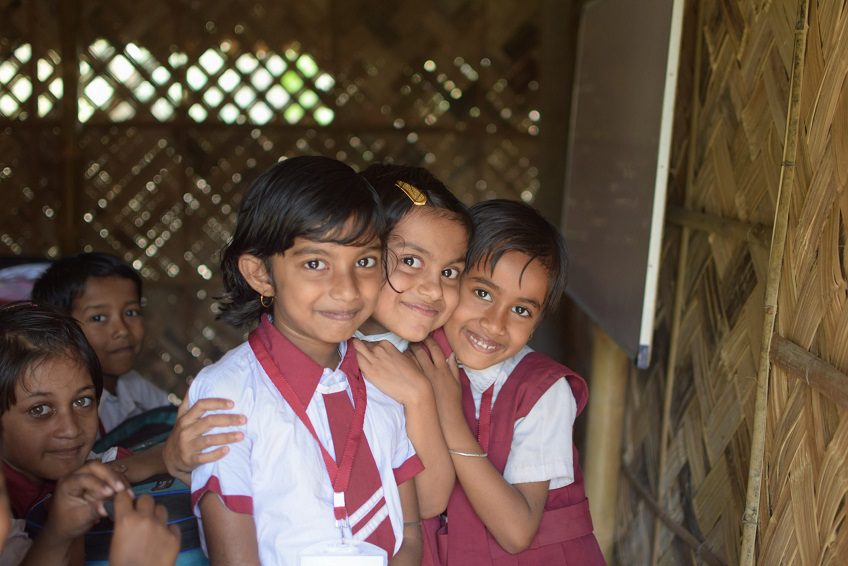
Students at Swapnopuron School in Hingalganj that is run by Satarupa Majumder
A journey of self-discovery
Born and brought up in a typical middle-class Kolkata home, Majumder had a happy childhood. She did her B.Ed and then Masters in Commerce from Kolkata University before getting married and moving with her husband to a small town near Mughalsarai in Uttar Pradesh in 1999. Majumder, who until then hadn’t given her career a serious thought, found that the town was in need of good English-speaking teachers and so she went ahead and applied for a job as a teacher. When the couple moved back to Kolkata in 2002 she continued her career as a teacher and began teaching Economics at a private school. Yet, the lack of satisfaction continued to bother her.
“It haunted me,” she said, “that despite all that I did, I was never truly satisfied.”
When she was introduced to Daishonin Buddhism, some of her questions were answered. “I took to it like fish to water. I chanted regularly and realized that what made me truly happy was working for the happiness of others. But I didn’t know how to integrate it into my daily life,” she said.
A journey destined by fate
That was when she happened to undertake that three-hour journey from her home in Kolkata to the town in Sundarbans — just five kilometers from the Bangladesh border — to donate that lone sewing machine. As she watched children playing in the dirt, she drew comparisons with her own daughter, who was then in Montessori. “My daughter had access to so many lovely educational toys, and these kids had nothing. I wanted to find a way to give these kids access to education and a shot at a bright future too,” she said, adding,
“But I also realized that as a teacher, I had to go beyond a mere classroom transaction. I had to do something for the community. I had finally found my answers.”
Majumder began conducting weekend classes at Hingalganj. She continued holding her day job at the private school all week and on Saturday mornings she would rise early to make tea and breakfast for her family, hail a cab to Howrah station from where she would take the 6.30 am train to Hasanabad. From there she would hitch a ride on a cycle rickshaw and then a ferry to get to the Sundarbans. An auto ride later she would be at her makeshift 56×18 foot school with a thatched roof where she would hold classes as well as go door to door to convince parents to send their children to school — if not to study then at least to play. “As a teacher, all the dreams that I had of giving back to society began to manifest. And that is how I set up Swapnopuron Welfare Society (SWS) and school. It was a dream come true,” smiled Majumder.
Fulfilling dreams and more
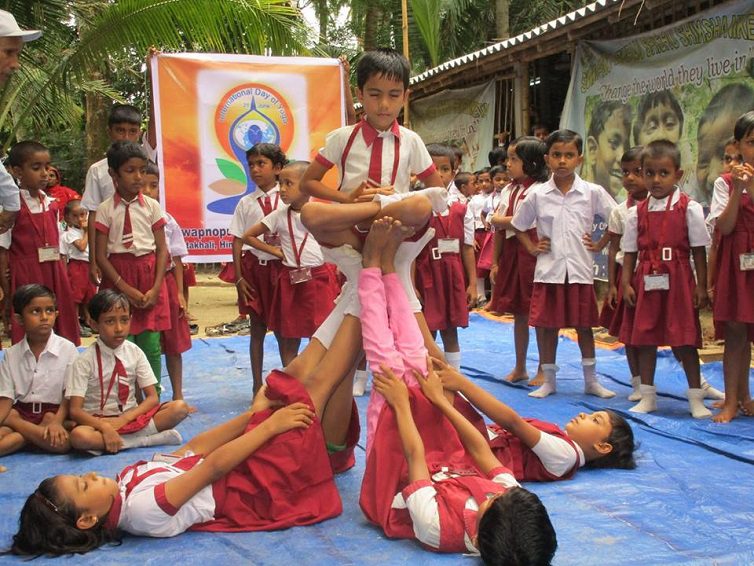
Students at Satarupa Majumder’s Swapnopuron School in Hingalganj
While Hingalganj does have other schools, the quality of education is far from robust and often students are not motivated to go back. With Swapnopuron, they dared to dream new dreams and of lives starkly different from their parents’. Incidentally, it was the local community that named the school Swapnopuron, which translates to ‘fulfilment of dreams’. In time, she recruited a few local teachers to fill in when she wasn’t around.
Majumder’s routine continued for six long years, when in 2018 she decided to quit her full-time job and give all her time to Swapopuron.
“Until then, I wanted to groom the teachers to take SWS forward. But I realized that I couldn’t hand it over to someone completely; I had to take it forward if I wanted to see it to fruition. Also, I couldn’t continue straddling both worlds anymore; I couldn’t do justice to either my day job or my passion project this way,” she explained.
Around that time, Majumder was also looking for land to expand the school. While they’d had donors in the past, nobody was willing to sponsor land as such. So Majumder used her PF money that she received after resigning from her job to sign the lease for the land needed to formally initiate the Swapnopuron School. What started off as a 56×18 foot school, now stood on 1.2 acres of land and eventually grew to have five branches in the Sundarbans. Today, the school which offers CBSE curriculum has more than 600 students studying from nursery to class 9, and has on board 12 teachers.
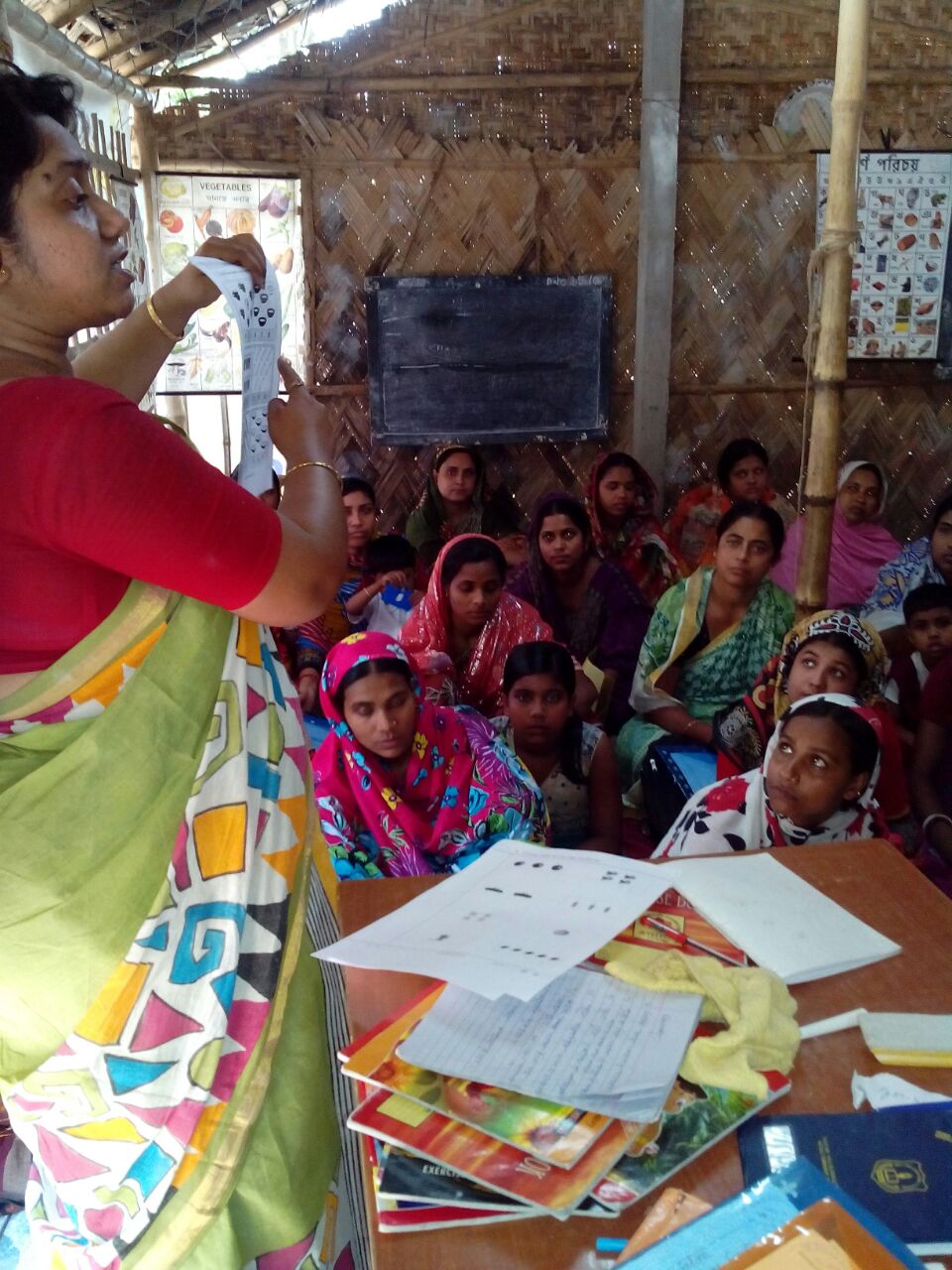
Satarupa Majumder conducting community outreach programs in the Sundarbans
Marching on uninterrupted
When the pandemic brought schools to a grinding halt, Majumder and her team found a work around to ensure that their students continued receiving uninterrupted education. “We realized that 50% of the students had access to a smartphone through their parents, while some others had smaller phones and others had no phones at all. Those with smartphones attended online classes, while our teachers conducted one on one classes over telephone calls for those without smartphones. And for the kids who had no phones at all, we would personally deliver worksheets and teaching material every 10-15 days,” she said.
Outreach programs
Apart from conducting classes, SWS also conducts empowerment programs for the parents, especially women. They are taught tailoring and poultry farming, and involved in other livelihood projects. Majumder and her team have also been carrying out relief work in the Sundarbans as and when the need arises. When Cyclone Amphan battered the Sundarbans in May 2020, several river embankments were inundated and some completely washed out. Majumder and her team stepped in to serve lunch to close to 2,500 people each day. They would ferry a simple meal of khichri or rice and sabji on boats and distribute it to the affected areas.
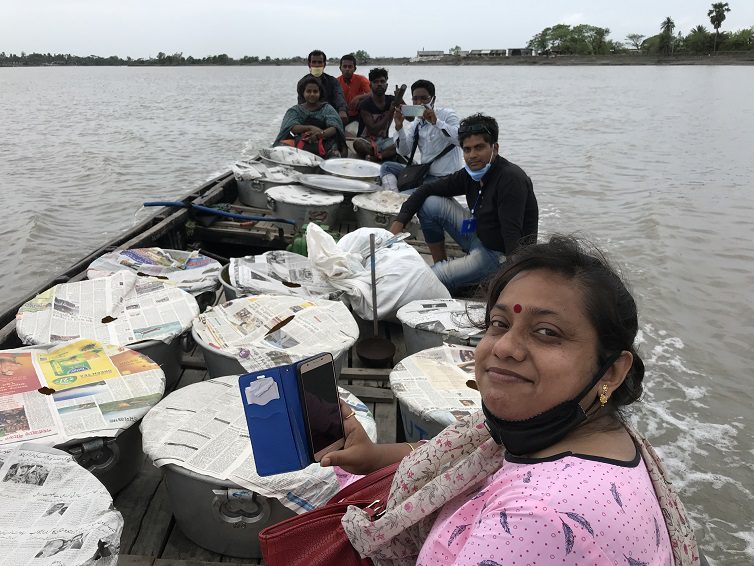
Satarupa Majumder and her team carrying food on a boat for those affected by Cyclone Amphan
Today, Majumder’s daughter, who is now 16, understands the depth of the impact her mother creates through her work. “Back then, she would be upset that I didn’t spend as much time with her. But now she understands the difference I am making,” smiled Satarupa Majumder, who says, that while she picked up essential skills such as strategizing, fundraising, and project proposals to help grow and sustain SWS, what she misses the most is teaching. “It’s what I’d started off as… a teacher.”



